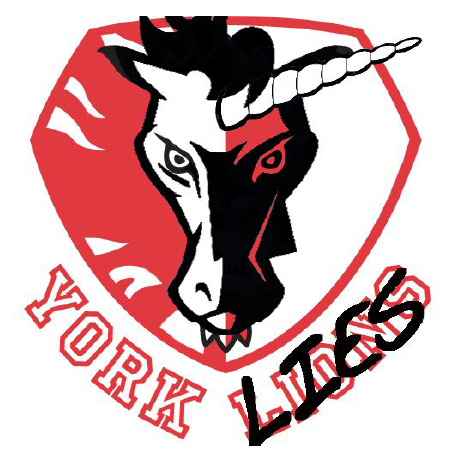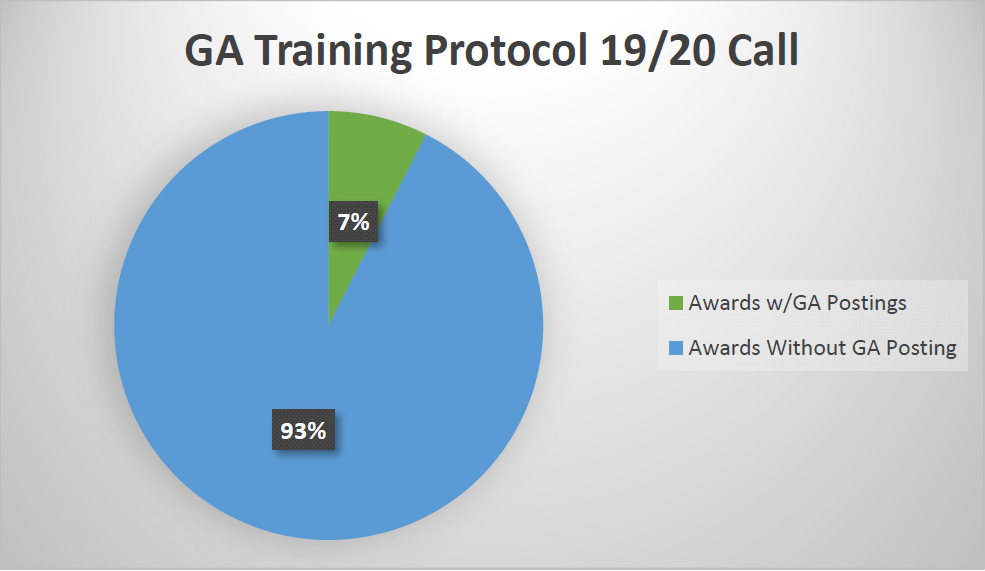Of CUPE 3903’s four units, Unit 3—full-time graduate students employed in research, administrative, or clerical work—has been under constant attack since 2016 when York introduced the fellowship model. The results of those attacks are stark: in 2015, the unit comprised around 800 members; in 2022-23 it had about 90, which is itself an increase from the years since 2016.
Information the employer revealed in the current round of bargaining—demonstrating that they have misled the Union about the cost of hiring a GA for not one, but two bargaining rounds—adds yet another layer to this deep pattern of union-busting.
To fully appreciate the implications, as well as the maliciousness displayed by the employer, we need to do a deeper dive into the history of Unit 3. This is a longer read, but efforts have been made to make the information as clear and accessible as possible. Sections are separated chronologically, and can be navigated to directly here:
- 2012–16: Protecting Tuition Indexation, Setting the Stage for the Fellowship Model
- 2016–17: Union-Busting in Full Swing
- 2017–18: On Strike for Graduate Student Jobs
- 2019–20: $74,000 Disappears from the Graduate Assistant Training Fund (GATF)
- 2020–21: Bargaining through COVID-19 and Bill 124
- Summer 2023: The Surcharge that Never Was
- Meanwhile, 2020-present: Same Fight, Different Front – Shifting Goal Posts on Unionized Work
- Present: Next Steps to Protect Fair Employment for Graduate Students
2012–16: Protecting Tuition Indexation, Setting the Stage for the Fellowship Model
When York rolled out what they called the fellowship model in September 2016, they did so in order to rob hundreds of Master’s students of access to jobs and benefits. Understanding the motivation behind this move requires looking back to what happened in 2012 and the subsequent strike to protect tuition indexation in 2015.
Tuition indexation is a provision of the Unit 1 and Unit 3 Collective Agreements that protects income from being eroded by tuition increases; it offsets any tuition increase with an equal increase in remuneration. It was bargained by the Union in the 1990s and successfully defended against the administration’s attempt to eliminate it in the 2000–2001 strike, at which point it also applied to Unit 3 (which certified in 1999). In 2012, York unilaterally reinterpreted the tuition indexation language and increased international graduate student tuition by around $7000 (see the Tuition Indexation leaflet prepared in 2015). When CUPE 3903 went on strike in March 2015, the strike issue for graduate students was tuition indexation. Both units of graduate students fought hard to protect tuition indexation in solidarity with international students but also with the understanding that domestic students would be next if this attack were to stand. Members of Unit 3 had an added reason to stay on strike: the pitiful strike pay provided by CUPE National was more than they got paid from York, showcasing just how low Unit 3 pay was—and still is.
On May 11, 2015, a mere 41 days after the strike ended with an agreement to protect tuition indexation, York informed the union that they were reinterpreting this agreement to mean that the “merit-based scholarships” (internal and external) and other funding that international students had earned would reduce the amount they received through tuition indexation. Their reinterpretation would mean very few international student members would receive the $7000 (the amount of international student tuition increase) they had been on strike for.
The union was able to protect tuition indexation for all through a combination of a legal challenge and escalating direct actions. Mere days before the case was to go to arbitration, York settled. In the midst of the arbitration process, Barry Miller, then Executive Director of Faculty Relations, said that the employer was working on something regarding graduate funding that would make the issue moot. The union was so unconvinced that we started calling this promise “the unicorn.” We were right to be dubious: the employer’s plan was the fellowship model. It didn’t render the issue of tuition indexation moot, and while the employer might have thought they succeeded in making graduate assistants moot, they were wrong. This was only the beginning of an ongoing struggle.
2016–17: Union-Busting in Full Swing
In January 2016, Rhonda Lenton, then Provost, met with the Union to explain that the Employer would be ending all funding for graduate assistantships, as well as summer funding for teaching assistants who are PhD students. For Master’s students under this model, the fellowship amount would be applied directly to their tuition and they could expect no other compensation. In the years before this new fellowship model, many Master’s students were funded through Graduate Assistantships. At its height, the bargaining unit that represented them had around 800 members. Some of these positions were research assistants paid through matched funds with Principal Investigators (PIs) or research centers, and many were funded through Faculty of Graduate Studies (FGS). PhD students also held jobs in Unit 3, especially but not solely if they required workplace accommodations.

Members dubbed this proposed fellowship model “the unicorn” and created this picture in 2016 in disbelief that York could deliver on its promise that it would render all our funding problems moot.
When the union objected to the University’s fellowship plan, Lenton expressed surprise that the union would be opposed to students receiving “free money” instead of having to work for it. This supposedly free money came with a number of strings, however: no access to the union’s benefits plan (which is vastly superior in coverage to the other plan available to graduate students, and at no additional costs for the member or their dependents), no access to protections against discrimination and harassment, no access to funds for emergencies, out-of-coverage health expenses, childcare, professional development, etc., and no work experience that could help with professional development. In real terms, this “free” money represented a significant financial loss, disproportionately affecting those already most disadvantaged.
Funding graduate students this way might seem like a strange financial choice for an employer with a history of extracting as much cheap labour from graduate students as possible! York’s motivations are not a mystery: the plan was to destroy one of the union’s bargaining units, as demonstrated by the way these changes were made. Not satisfied with pulling FGS funding for positions in Unit 3, the employer recalculated the cost of benefits, which they set at an 80% surcharge, despite never providing any proof of those calculations. As a result, Principal Investigators (PIs) would have to pay not only the cost of the contract, but an extra 80%, increasing the cost of a 135 hour GA by around $8000. They proceeded to warn faculty members who might want to hire Unit 3 members out of their own grants not to do so, as the artificially inflated cost would make their grant applications non-competitive. York all but told PIs: we did this so you can’t hire them out of your own pocket either!
Membership in Unit 3 fell by roughly 90% due to these tactics. Further, the employer decided to replace Graduate Assistantships for members who need workplace accommodations for disability or other reasons with “miscellaneous” Unit 1 assignments which are often indistinguishable from Unit 3 work. York may have wanted this to be the end of Unit 3, but they didn’t account for the fightback.
2017–18: On Strike for Graduate Student Jobs
On February 15, 2017, CUPE National filed an Unfair Labour Practice (ULP) against York University on CUPE 3903’s behalf, alleging that the employer’s actions were a form of union-busting. The York University Faculty Association (YUFA) filed for intervenor status in support of the case. The ULP case was ultimately paused since bargaining was underway.
Bargaining heated up quickly in 2017. Given the previous years, where the employer had first reneged on the agreement that ended the 2015 strike, then rolled out a new funding model that robbed Unit 1 members of summer funding and financial autonomy and decimated Unit 3, York’s insistence on tabling major concessions for Unit 2 job security meant a round that was acrimonious from the start. Making things worse, York hired a lawyer renowned for his union-busting strategies to lead the negotiations. This was an unusual move for this employer, signaling a shift towards a more aggressive, anti-union attitude and approach. We can’t say for sure that the strike that followed was originally what York wanted, but we can certainly speculate that if they did, their actions would have been quite effective in creating the conditions to achieve that outcome.

From the very start of bargaining in 2017, the union identified reversing the union-busting of Unit 3 as a main bargaining priority, as seen in this poster.
On the Unit 3 front, the bargaining team had a small number of very important proposals: return funding to GAs or, at the very least, reduce the 80% benefits surcharge to levels consistent with other bargaining units. York refused to even talk about Unit 3 and often argued that the union shouldn’t even bargain for the unit. The surcharge proposal was presented on October 16, 2017, and remained in the package until the very end. The union moved several times to try to find a position the employer could work with, to no avail. Unsurprisingly, it seems there’s no real compromise between allowing a group to exist and wanting them to disappear.
The strike ended for Unit 3 after 143 days, as the result of illegitimate back-to-work legislation imposed by the newly elected Ford government. This meant that the proposals were put to an arbitrator for interest arbitration. The arbitrator did what arbitrators do, and sided with the employer, granting nothing for Unit 3 except for a paltry Graduate Assistant Training Fund (GATF) of $80,000 to “support the incentive of research at the University and the provision of high-quality training opportunities in research for graduate students,” as the language of the GATF says. Even this small gain soured quickly when the employer severely mismanaged the fund.
2019–20: $74,000 Disappears from the Graduate Assistant Training Fund (GATF)
Committed to making the little money gained in interest arbitration work for graduate student members, the union discussed the roll-out of the GATF with the employer at Labour Management Committee meetings, and also met with the York University Faculty Association (YUFA) to discuss how such a small fund could best be used to incentivize Principal Investigators (PIs) to hire within Unit 3. YUFA was also negatively impacted by their source of research assistance being taken away without notice (read more about YUFA’s successful grievance arbitration here). We communicated to the employer that, if the cost of a half-GA is increased by roughly $8000 due to the 80% benefits surcharge, a $2000 grant isn’t that much of an incentive.
Over our objections, the employer rolled out the first ever call for the GATF in November 2019. As early as January 2020, the employer announced that there were no funds left in the GATF. While this was suspicious on its own, the union then started hearing reports from YUFA and our own members that those few faculty members who did receive GAT funds were not planning to hire GAs and had never done so. Over that winter and spring, we made several attempts to ask the employer to show that the money from the GATF went to PIs who hired GAs. Clearly knowing that it hadn’t, they ghosted us for months, finally admitting in July 2020 that (oops!) only three of the grants went to hiring a GA, for a total of $6000. The remaining $74,000 was unaccounted for. Rob Lawson, then Associate Director of Faculty Relations, included this helpful chart, in case the union had trouble visualizing exactly how much money from the Unit 3 collective agreement had been used for unrelated purposes.

Rob Lawson sent this pie chart to the union after ignoring several months of questions about how the GATF had been spent.
The union filed a grievance about the mismanagement of the fund and the missing money. Even though the employer agreed that the money had been misspent, we were unable to resolve the grievance. Instead of taking responsibility as the entity responsible for managing the funds, the employer instead blamed the faculty members who received the $74,000. The case was referred to arbitration.
2020–21: Bargaining through COVID-19 and Bill 124
The next bargaining round was difficult, as everyone adjusted to a fully online existence in the face of the COVID-19 pandemic. This meant that bargaining started later than usual, and happened completely remotely. At issue for Unit 3 in this round of bargaining were three main issues: joint oversight of the GATF so that the employer could no longer use it as a slush fund; a clearer articulation of what work is included in the bargaining unit (more on this below); and notably for a second time, reducing the benefits surcharge on the hiring of Unit 3 members to a level consistent with other employee groups on campus (see these articulated in this report, for example). The employer would not engage with the surcharge question at all. Eventually, Unit 3 ratified an offer that included, in exchange for withdrawing the GATF arbitration case, increased funding for the GATF from $2000 to $5500 per grant, a better process for the disbursement of funds, and an agreement that amounts misspent or unspent from the previous two rounds (a total of $128,000) could be included in the next two fund calls. Consequently, the employer suggested increasing each GATF grant to $7000 per PI.
In the context of Bill 124, which the employer interpreted to mean that the total cost of the collective agreements was limited to a 1% increase, increasing the funds available for the GATF required some creative sacrifices. The union suggested, and the employer agreed, to move $140,000 from the Master’s Bursary Fund to the GATF. The motivation for doing so was to make the GATF grants large enough to act as real incentives in the context of an 80% surcharge on the cost of hiring a GA.
It’s worth noting that the employer refused to use the increased funding to create additional GATF grants. They were unwilling to allow for more than 40 GAships, insisting that additional money should go to faculty members, rather than benefiting more graduate students. The motivations for this are clear: the point all along was to destroy Unit 3, and so York had no interest in hiring more GAs than absolutely necessary.
Summer 2023: The Surcharge that Never Was
At the start of the 2023 bargaining round, the union made a number of information requests, which is a standard part of bargaining. One such request was for the cost a PI incurs to hire a member into Unit 3. The employer replied with this website, which lays out the following costs: $4,357 for a half GA and $8,713 for a full GA.
These numbers were a surprise to everyone on the union side: since 2016, we had been told that the cost for a PI to hire for 135 hours is around $13,000 and, for 270 hours, around $21,000 (see for example this document from September 2016). The union asked on August 1 when the cost had changed, and was told that, as far as the employer knows, this amount has always been the cost. We then asked what happened to the money in the grants in excess of the cost of the hire. Were PIs just pocketing the difference this whole time? The employer answered they would look into it.
We gave them an opportunity to check their facts, then asked again at the August 17 bargaining session. These are the facts the employer agrees are true:
- When the union bargained and went on strike for 143 days in no small part due to the benefits surcharge, that extra cost did not exist.
- When the union negotiated an increase to the GATF to offset this benefits surcharge, using money from another fund due to the limitations of Bill 124, the surcharge did not exist.
- When the employer suggested using unused funds from the previous collective agreement to increase the amount of a GATF grant to $7000 so that grants could cover more of the cost of hiring, the benefits surcharge did not exist and the cost of a half-GA was $4,357.
Dan Bradshaw, AVP of Labour Relations, tried to defend himself by saying that he is new and does not know what came before him. He was reminded that a benefits surcharge proposal was tabled by the union in 2021, a bargaining round which he led. He then took the position that he does not recall that proposal, but even if he had, the employer would not have agreed to it, because while they have yet to apply a benefits surcharge in the last seven years, they still might. This, somehow, was presented as an argument against the fact that the employer had a responsibility to inform the union that the basic facts against which we were bargaining were, are, and always have been false.
Meanwhile, 2020-present: Same Fight, Different Front – Shifting Goal Posts on Unionized Work
The fellowship model and benefits surcharge are not the only way the employer has attacked Unit 3’s very existence as a bargaining unit. In 2020, the union became aware of several positions that should have been in the unit that were posted as non-unionized “research assistantships,” contrary to the long-standing agreement between the union and employer on the interpretation of the Unit 3 scope clause (which defines who is covered by the collective agreement). Although it was previously agreed since 2007 that non-union RAs were not employment, but rather a grant tied to the member’s own research, the employer has now taken a variety of positions in an attempt to make non-unionized employment the default for research jobs at York.
The bargaining team in the 2020–21 round tried to address this misclassification of work, but the employer refused to engage with the issue.
This case is currently in arbitration, which means a neutral third party will hear arguments from both sides. This process is taking a lot of time due to the nature of arbitration, but also the employer dragging its feet on producing the information the arbitrator ordered them to share. Two hearing dates took place on November 20th and December 7th 2023. The next date is scheduled for March 7th 2024.
While not directly tied to the surcharge situation, this attempt to redefine research assistants as always non-unionized work is part and parcel of the context of York’s constant attempts to strip graduate research work of protections and benefits and destroy Unit 3. Looking at the full picture of this employer’s actions, it would be naïve to assume that they represent anything but a concerted attempt at union-busting.
Present: Next Steps to Protect Fair Employment for Graduate Students
Between constant attacks on the integrity of the bargaining unit, missing funds, and outright misrepresentations at the bargaining table, the last seven years have been a constant struggle for Unit 3. Yet, the unit still exists despite York’s best efforts.
CUPE 3903 has resisted these attacks since 2016. We will continue to resist. No matter the setbacks we face, no workers at York can afford to let the employer get away with decimating bargaining units and unilaterally deciding that work that’s been unionized for decades is not any longer. This fight is existential. We fight because all workers deserve dignity, protections, and benefits. We fight for the integrity of the right to union representation for all workers. We fight because bad employers all over the sector can’t be emboldened to take such actions and get away with it.
On October 17th, CUPE 3903 filed a policy grievance concerning the surcharge that never existed and the fact that collective agreement funds have been misused –again!– as a result of the employer’s bad faith bargaining. This grievance has also been referred to arbitration as of November 17th. The Unit 3 members of the bargaining team have presented numerous proposals designed to strengthen the GATF and provide better funding and more clarity for members of Unit 3, but at every turn, the employer has reacted negatively to these proposals.
Right now, what you can do to fight for decent, unionized jobs for graduate students is to vote YES in the upcoming Strike Mandate Vote, which will be held online between December 11th and December 18th.
Between the bargaining table and the upcoming arbitrations, the fight for Unit 3 continues, and it won’t end there. This fight ends once we win.

